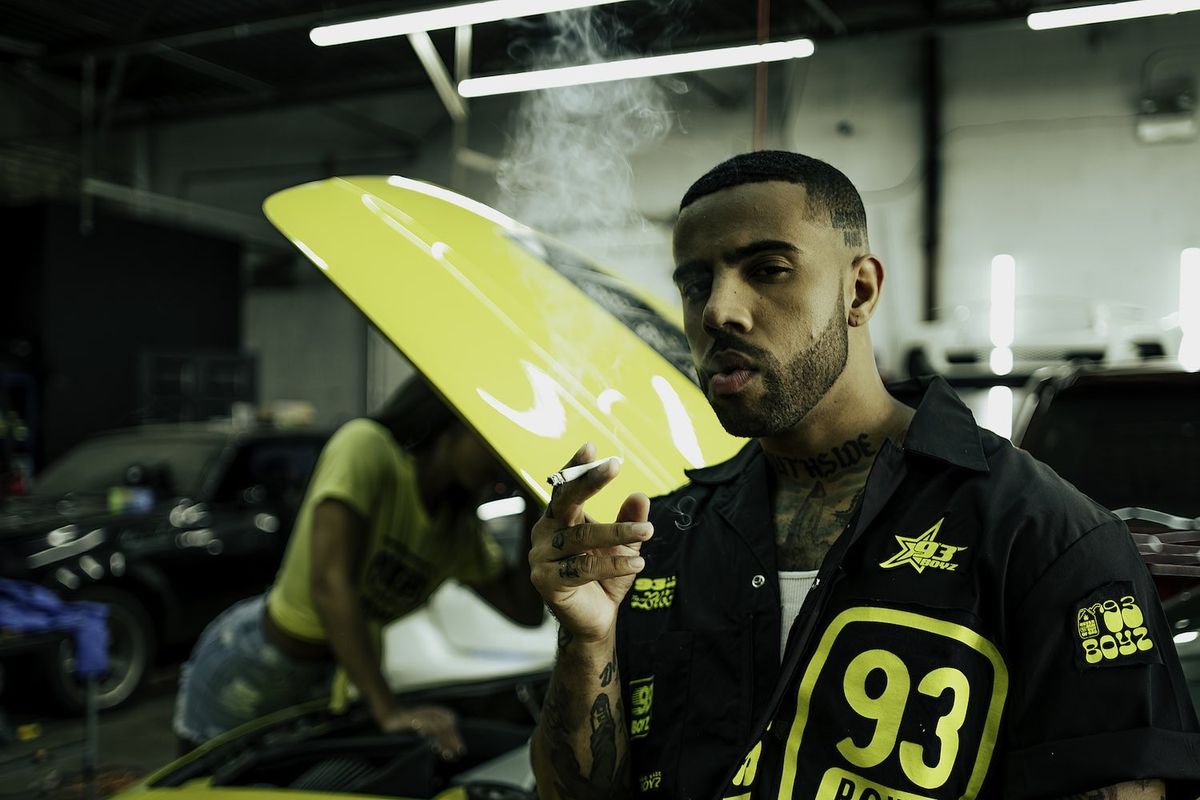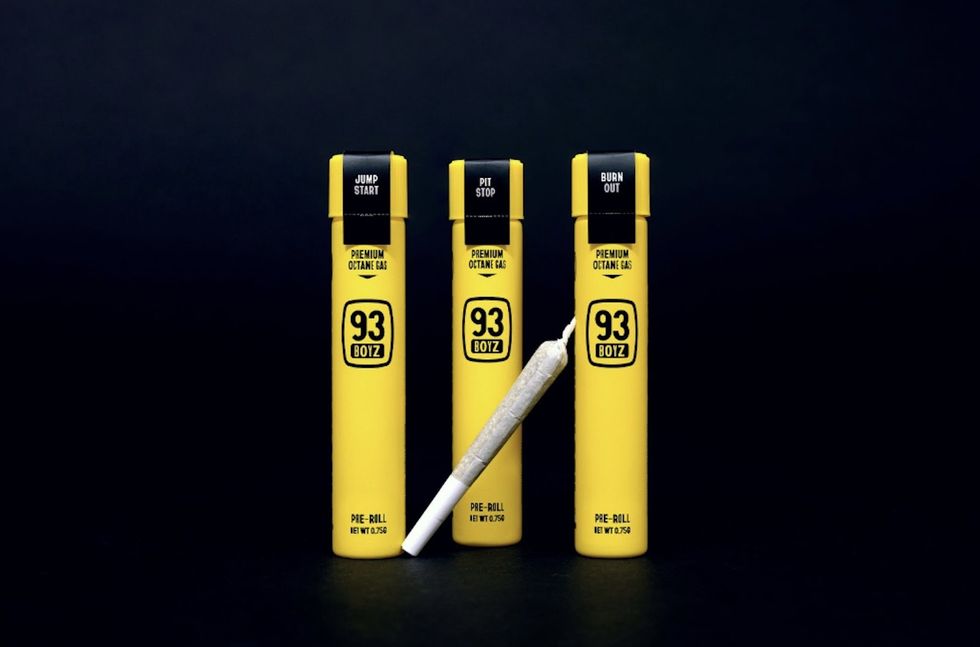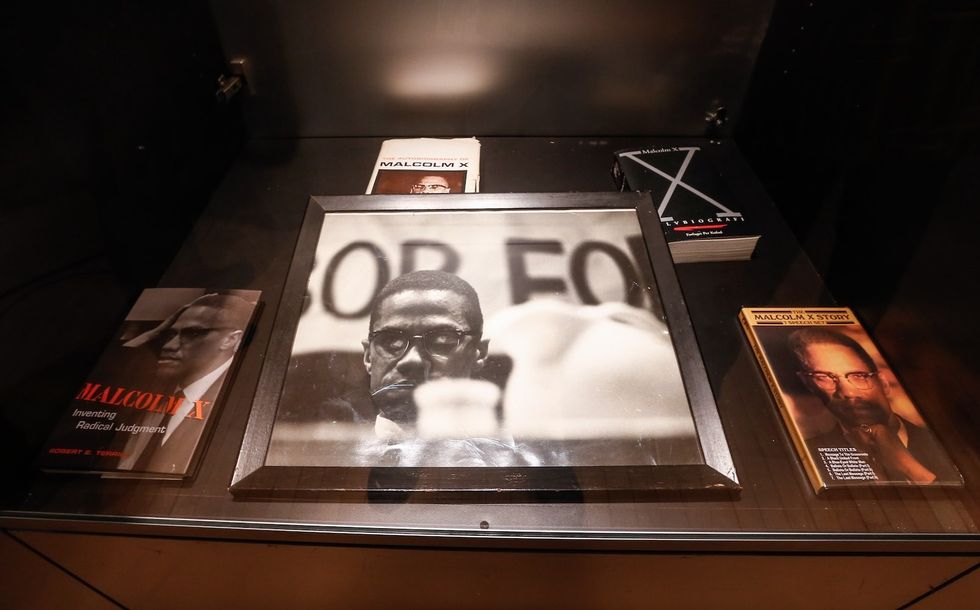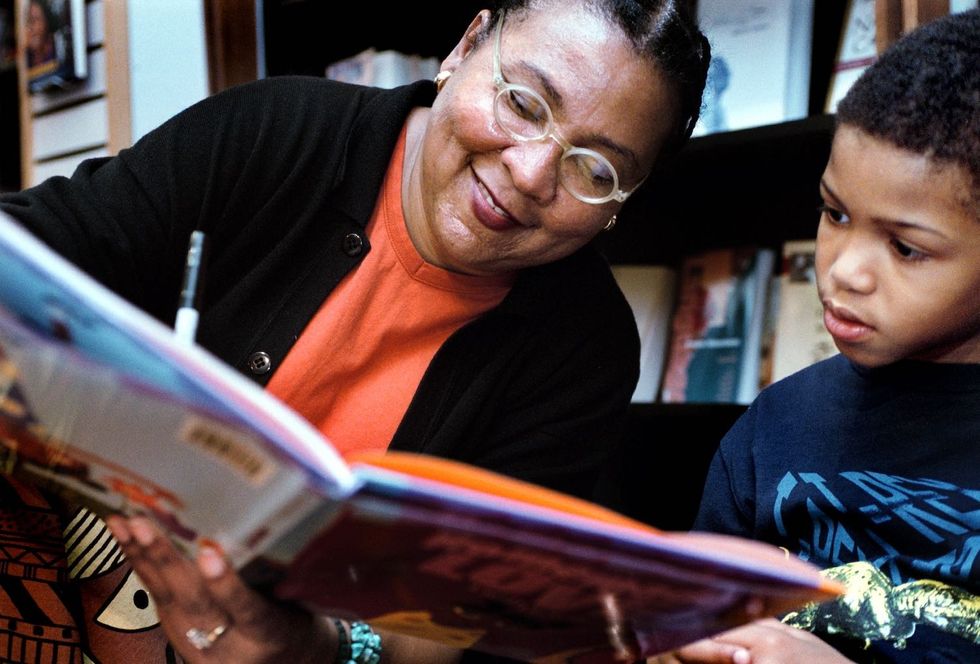
Vic Mensa is Behind Illinois’ First Black-Owned Cannabis Brand
Photo Credit: Gabe Oviawe
To continue reading
Create a free account or sign in to unlock more free articles.
By continuing, you agree to the Terms of Service and acknowledge our Privacy Policy
Register
The content is free, but you must be subscribed to Okayplayer to continue reading.
THANK YOU FOR SUBSCRIBING
Join our newsletter family to stay tapped into the latest in Hip Hop culture!
Login
To continue reading login to your account.
Forgot your password?
Please enter the email address you use for your account so we can send you a link to reset your password:

Vic Mensa often pauses between words. His thoughts are carefully selected in the moment by pulling from a lifetime of ideas honed by knowledge hes gained through intention as often as experience. Life and death is in the power of the tongue, he said during a July video interview, paraphrasing a lesson learned from Florence Scovel Shinn'sThe Game of Life and How to Play It. The novel, about mastering the metaphysical laws of the universe in order to master your own mind, is just one of many that Mensas new cannabis company, 93 Boyz, will be sending to incarcerated people in Illinois.
In the two years since recreational marijuana became legal in Illinois, the market has grown to over $1.5 billion in sales. Mensas new brand will be the first Black-owned cannabis company in the state to see a slice of that revenue. The irony that the same communities of Black and brown people aggressively criminalized and policed by the war on drugs, are the last to be granted access to the financial opportunities opened by legalization is not lost on Mensa.
As the laws have changed, in classic American fashion, Black people have been completely excluded from the process, Mensa said. Black ownership in the cannabis industry, as I'm sure with many other industries, it's like, little to none.
A foot in the door can go a long way Mensa knows that firsthand.
Selling weed was my first hustle, he said. Before I made a dime off of rapping, I was making $1 off a dime. That's how I funded my first mixtapes, my initial studio time, my music videos. Me and a lot of my guys, that's just our reality.
Not only will 93 Boyz be breaking some ground by bringing a marginal increase in equity to Illinois cannabis market, but the potential to use that equity to lift up others is never far from his mind. From his companys inception, Mensa was looking for a way to use the legal cannabis market to address some of the damages resulting from the formerly prohibited market. He was reminded of his personal experiences sending books to read alongside incarcerated friends as far back as his late teens.
I've seen the immense transformative potential and power of literature for incarcerated people, Mensa said. I sent [one friend] Huey P. Newton's Revolutionary Suicide. In Revolutionary Suicide, Huey speaks about how during his incarceration, much of which was spent in solitary confinement, he learned to master his mind and his memories in such a way that he might have been physically incarcerated but he was mentally elsewhere you know, mentally free.
Witnessing that transformative power over and over again in his life is what inspired 93 Boyzs first equity-focused project. Through a partnership with the nonprofit Books Before Bars, the company will dedicate a portion of profits to sending the same books that brought transformative experiences to Mensa and his friends, to prison libraries throughout Illinois.
Okayplayer spoke with Mensa about fighting for equity in the cannabis market, and the life lessons he hopes to impart through literature.

What does it mean to be the first Black-owned cannabis brand in Illinois?
Vic Mensa: Being the first Black-owned cannabis brand in Illinois is at once surreally satisfying, and at the same time deeply troubling. The criminalization of plant medicine has had some devastating effects on the Black community in particular. If one examines the history of cannabis in the United States, you'll quickly learn that it was cannabis association with Black people and Mexicans that was hugely influential in it becoming scheduled as an illegal narcotic. And yet, as the laws have changed, Black people have been completely excluded from the process. Black ownership in the cannabis industry is little to none.
Do you see potential in the cannabis industry to undo or mitigate some of that damage the war on drugs caused to marginalized communities?
I have to say I do see potential because that's why I'm here, you know? But I also have to say that there's going to need to be much more transparency and much less cheating and lying. You know those things are the American way though, and definitely the Chicago way, and politically. Even with that said though, I know, personally, some brilliant people who have been dedicated to this work.
One of the initial plans for 93 Boyz to build equity is to channel a portion of the profits toward purchasing books to distribute to prisons. Why that particular project?
In recent years, as I've become much more involved with prison advocacy and release, I've almost had my own book club with some of my guys as they've been locked up. I'll send them books that we read at the same time. One of the first ones that I sent was to my friend James. I sent him The Power of Now. We both were reading Eckhart Tolle at the same time and discussing the lessons that we're taking from it, and seeing a way that could do so much to help an individual find freedom in the most soul-crushing and constricting of circumstances.
Then I sent The Game of Life and How to Play It to one of my guys about a year ago when my guy Hundred Round Kado got locked up. It's a little book from the 1920s about spiritual law and the law of karma, attraction, love, and forgiveness, and how to have grace and to master your mind and your thoughts and manifest the things that you want. And I just saw his brother transform so radically this is like a hardened street dude. And he was born in federal prison. His mother was incarcerated in federal prison at the time of his birth, probably spent half of his life locked up. I sent him that book and that book changed my life right at that moment when I saw how it changed him. In the next eight months, I sent him somewhere from 20 to 40 books.
So, as I was thinking about 93 Boys and an initiative to launch the company with, I was talking to another one of my comrades who's incarcerated about what's needed, what I could do to help. In the conversation, I was like, Man, what do I already send to the prisons? I probably send hundreds of books to prisons just personally to my friends every year. So, it just made sense for me to make that my first initiative with 93 Boys.

What are some of the traits youre looking for that these books have in common that make them particularly impactful at that point in time?
A lot of them obviously fall into that genre of Black Power literature, which is completely essential for the prison population, Black and otherwise. When you're reading Malcolm X and you see his transformation, or when youre reading Huey P. Newton and you see where they landed ideologically, it will make you understand that the proletariat struggle and the exploited classes of America across color lines, are all intrinsically connected and are all victims of a larger capitalist system. Reading some of these books will also make you understand that we are being exploited and pitted against each other, in order to divert our gaze from the ever-present hand in our pocket coming from the government, big pharma, and Fortune 500.
The Black Power titles are essential here because they give context to our experience. For somebody that's incarcerated, that can be the seed of the larger fracture that breaks them out of this fucking cycle, putting actual information to what we all feel deep underneath our skin, whether or not we got the education. It's like [knowing], I'm being mistreated.
I've seen people master the concepts inside of these books and use them to will themselves out of prison. Everything that happens in our physical reality is, in one way or another, impacted and influenced by our internal reality. If you can master your thoughts, that's the biggest thing that I'm trying to impart to people with this books before bars program is to help them to be able to master their own mind, master their own thoughts. By doing that you can master your external reality, but nothing's going to shift externally until your internal shifts.
Can you give me three life lessons that could be taken away from this reading list?
One of the most important life lessons from this reading list is to be found in The Game of Life and How to Play It. And that is, life and death are in the power of the tongue. That is paraphrased from the Bible and is illustrated in this book by constantly reinforcing the value and power of the spoken word. Since reading that book, I've become so much more careful about things I say and things I think. For instance, I'm frustrated and I want to say nothing is going right. I wont even say that shit no more. I catch myself and be like, Everything is working out in my favor.
I remember before [Hundred Round Kado] got locked up, I barely could even take him some places because all he wanted to talk about was the streets and war and death, and how he saw death coming for him. After reading this book, I've never heard him say those things again. He doesn't even speak like that anymore because now he recognizes that life and death are in the power of the tongue.
A second lesson?
One life lesson to take from The Autobiography of Malcolm X, is that a seemingly tragic and devastating circumstance can yield a powerful and astounding transformation. We don't get Malcolm X out of Detroit Red without his incarceration. That's something we can all learn from The Autobiography of Malcolm X, because who doesn't go through inherently painful shit? The loss of a parent, child, friend, or the rejection from the university you've dreamed of forever, or being arrested or being a victim of some type of trauma. We all need to know that if we decide that it is so, those most hurtful moments of our life can become the seeds of our greatest growth.
One thing I feel like I learned from The Autobiography of Malcolm Xwas what a man can do with education with intention. When you have a single-minded focus on improving yourself, the things you can do with that focus go beyond the education to the way you impact the world around you.
Exactly, man. That shit means a lot to me. Even to be at this point in my life, and doing so many new things and feeling so radically transformed. It's in opposition to a lot of things that we're told. We're told by the time you're grown, you're 21, You are who you are, you can't change. You got this criminal record, you are who you are. You're never not gonna be that. What we see from Malcolm X, and how I just relate that to my own life is, you see a man who intentionally educated himself and continued to change and improve radically, and that's where I feel like I'm at. Im a work in progress.

And lesson three?
A lesson to take from Bell Hooks' The Will to Change can almost be found in the title of another one of her books, which is that feminism is for everybody. The Will to Change dissects masculinity and patriarchy in such a way that really makes you understand that this hierarchical order that we've been inundated into through society, the media, our families, tradition, and the law is damaging for all of us. There can be no real love within brutality. We're raised to, in many ways, believe this tough love side of love. I'm hurting you now because I love you. I think that the lessons contained in feminism and in opening ourselves up, especially as men, to the idea of feminism are boundless.
Check out the reading list that Vic Mensa and 93 Boyz will be sending to prisons in their partnership with Books Before Bars: